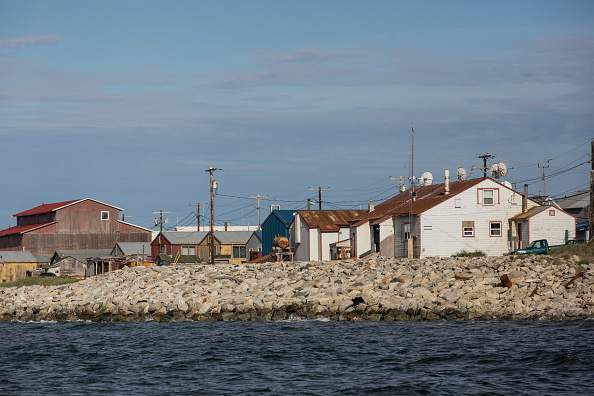Due to climate change, a village in Alaska voted on whether it should relocate


A free daily email with the biggest news stories of the day – and the best features from TheWeek.com
You are now subscribed
Your newsletter sign-up was successful
Residents of a coastal village in Alaska being threatened by rising sea levels and thawing permafrost voted Tuesday on whether they should relocate to a new area.
Shishmaref, Alaska, is home to 650 people, mostly members of the Inupiat Inuit tribe. The city clerk said the results will be announced Wednesday, and if the vote is in favor of leaving, the town's new location will be decided at a later town meeting. It's estimated it would cost $180 million for the village to move. Shishmaref is built on a barrier island north of the Bering Strait, and once was protected by sea ice, which is now melting and putting the village in danger; sea walls and barricades aren't doing much to keep the waves at bay, The Guardian reports.
In 2015, Arctic youth ambassador Esau Sinnok, a native of Shishmaref, wrote that over the past 35 years, the village has lost 2,500 to 3,000 feet of land to coastal erosion. He also said that in the last 15 years, his family has had to move to 13 different houses, moving from one end of the island to the other, in order to avoid the rising water. In addition to Shishmaref, the U.S. Government Accountability Office found 30 other villages are facing "imminent threats" from flooding and coastal erosion.
The Week
Escape your echo chamber. Get the facts behind the news, plus analysis from multiple perspectives.

Sign up for The Week's Free Newsletters
From our morning news briefing to a weekly Good News Newsletter, get the best of The Week delivered directly to your inbox.
From our morning news briefing to a weekly Good News Newsletter, get the best of The Week delivered directly to your inbox.
A free daily email with the biggest news stories of the day – and the best features from TheWeek.com
Catherine Garcia has worked as a senior writer at The Week since 2014. Her writing and reporting have appeared in Entertainment Weekly, The New York Times, Wirecutter, NBC News and "The Book of Jezebel," among others. She's a graduate of the University of Redlands and the Columbia University Graduate School of Journalism.
